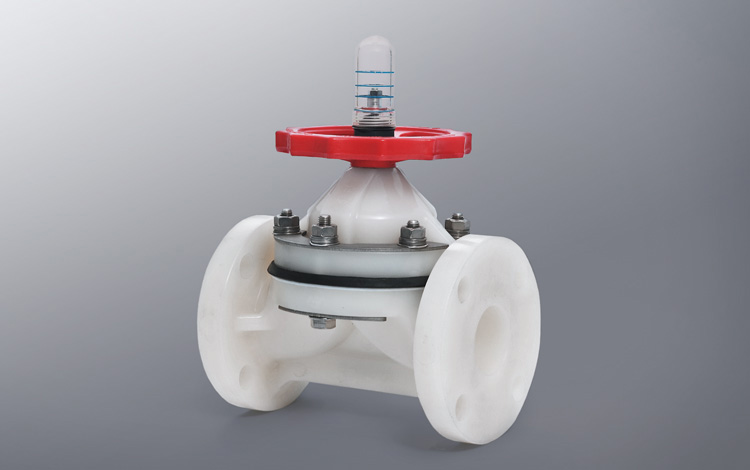Valves play a crucial role in controlling the flow of liquids and gases in various industrial applications. Among the myriad of valve types available, PVDF (Polyvinylidene Fluoride) valves stand out for their exceptional properties and performance. This guide delves into everything you need to know about PVDF valves, from their composition and benefits to their applications and maintenance.
What is PVDF?

Definition and Composition
PVDF, or Polyvinylidene Fluoride, is a high-performance thermoplastic polymer known for its chemical resistance, mechanical strength, and versatility. It's composed of repeating units of vinylidene fluoride and is part of the fluoropolymer family.
Key Properties of PVDF
PVDF is prized for its:
Chemical Resistance: Withstands a wide range of chemicals, making it ideal for corrosive environments.
Temperature Tolerance: Can operate in temperatures ranging from -40°C to 150°C.
Durability: Offers excellent resistance to wear and abrasion, ensuring long service life.
Why Choose PVDF Valves?

Chemical Resistance
PVDF valves are highly resistant to acids, bases, solvents, and other corrosive substances, making them suitable for harsh chemical processing environments.
Temperature Tolerance
These valves maintain their integrity and performance across a broad temperature spectrum, from cryogenic conditions to high-heat applications.
Longevity and Durability
PVDF valves are designed to last, with minimal maintenance required, providing cost-effective solutions over their lifespan.
Types of PVDF Valves

Ball Valves
Ideal for on/off control without pressure drop, ball valves are versatile and easy to operate.
Butterfly Valves
Butterfly valves are suitable for regulating flow and can handle large volumes of fluid with minimal pressure loss.
Diaphragm Valves
These valves are perfect for applications requiring contamination-free flow, often used in food and pharmaceutical industries.
Check Valves
Check valves allow unidirectional flow, preventing backflow and potential damage to equipment.
Gate Valves
Gate valves offer precise control and are typically used in applications where full flow is required.
Applications of PVDF Valves

Chemical Processing Industries
PVDF valves are extensively used in chemical plants due to their resistance to corrosive chemicals.
Water Treatment Plants
Their durability and resistance to chemical treatment agents make them ideal for water purification systems.
Food and Beverage Industries
PVDF's non-reactive nature ensures that valves do not contaminate food and beverage products.
Pharmaceuticals and Biotechnology
In these sectors, the need for sterile and contaminant-free environments makes PVDF valves a top choice.
Semiconductor Manufacturing
PVDF valves are used in semiconductor manufacturing for their high purity and resistance to aggressive chemicals.
Installation and Maintenance of PVDF Valves

Installation Guidelines
Proper installation ensures optimal performance. This includes following manufacturer guidelines, ensuring correct alignment, and using appropriate sealants.
Routine Maintenance Tips
Regular inspection and cleaning can prevent buildup and ensure longevity. Lubricate moving parts and replace worn components as needed.
Troubleshooting Common Issues
Common issues include leaks and sticking mechanisms, which can often be resolved with cleaning and proper lubrication.
Comparing PVDF Valves with Other Materials
PVDF vs. PVC
While both are resistant to chemicals, PVDF offers superior temperature resistance and mechanical strength compared to PVC.
PVDF vs. PP (Polypropylene)
PVDF outperforms PP in terms of chemical resistance and temperature tolerance, though PP is often more cost-effective.
PVDF vs. Metal Valves
Metal valves offer high strength but can corrode in harsh environments, where PVDF's chemical resistance provides a significant advantage.
Selecting the Right PVDF Valve

Factors to Consider
Consider the type of fluid, operating temperature, and pressure requirements when selecting a valve.
Sizing and Pressure Ratings
Ensure the valve is appropriately sized for your system and can handle the maximum operating pressure.
Compatibility with Fluids
Verify that the valve material is compatible with the specific chemicals and fluids in your application.
Innovations in PVDF Valve Technology

Recent Developments
Advancements include enhanced designs for better flow control and automated PVDF valves for improved efficiency.
Future Trends
Future trends point towards increased integration of smart technologies and improved manufacturing techniques for greater durability.
Environmental Impact of PVDF Valves

Sustainability Considerations
PVDF valves are durable and require less frequent replacement, reducing waste.
Recycling and Disposal
While recycling PVDF can be challenging, efforts are underway to improve recycling methods for fluoropolymers.
Cost Analysis of PVDF Valves
Initial Costs
PVDF valves may have higher upfront costs compared to other materials, but their longevity and low maintenance can offset this.
Long-term Cost Efficiency
Due to their durability and minimal maintenance needs, PVDF valves offer cost-effective solutions over their lifespan.
Safety Considerations with PVDF Valves

Handling and Installation Safety
Follow safety protocols during installation to prevent accidents and ensure proper function.
Operational Safety Measures
Regular maintenance and inspection can prevent operational failures and ensure safety in high-risk environments.
Certifications and Standards for PVDF Valves

Industry Standards
PVDF valves must adhere to industry standards such as ISO and ASTM to ensure quality and reliability.
Certification Bodies
Look for valves certified by reputable bodies to ensure compliance with safety and performance standards.
Customer Reviews and Testimonials

Real-world Experiences
Customer reviews highlight the reliability and performance of PVDF valves in various applications.
Case Studies
Case studies demonstrate the successful implementation of PVDF valves in challenging environments, showcasing their benefits.
Conclusion
PVDF valves are a reliable, durable, and versatile solution for a wide range of industrial applications. Their superior chemical resistance, temperature tolerance, and low maintenance requirements make them an excellent choice for industries requiring high performance and durability. Whether you're in chemical processing, water treatment, or any other field, PVDF valves can provide the reliability and efficiency you need.
FAQs
Q. What are PVDF Valves Used For?
Ans: PVDF valves are used in industries requiring high chemical resistance, such as chemical processing, water treatment, and pharmaceuticals.
Q. How Do PVDF Valves Compare to Other Plastic Valves?
Ans: PVDF valves offer superior chemical resistance and temperature tolerance compared to other plastic valves like PVC and PP.
Q. Can PVDF Valves Handle High Temperatures?
Ans: Yes, PVDF valves can operate in temperatures up to 150°C, making them suitable for high-temperature applications.
Q. What Maintenance Do PVDF Valves Require?
Ans: PVDF valves require minimal maintenance, typically involving regular inspection, cleaning, and occasional lubrication of moving parts.
Q. Where Can I Buy High-Quality PVDF Valves?
Ans: High-quality PVDF valves can be purchased from reputable industrial suppliers and manufacturers specializing in fluoropolymer products.

